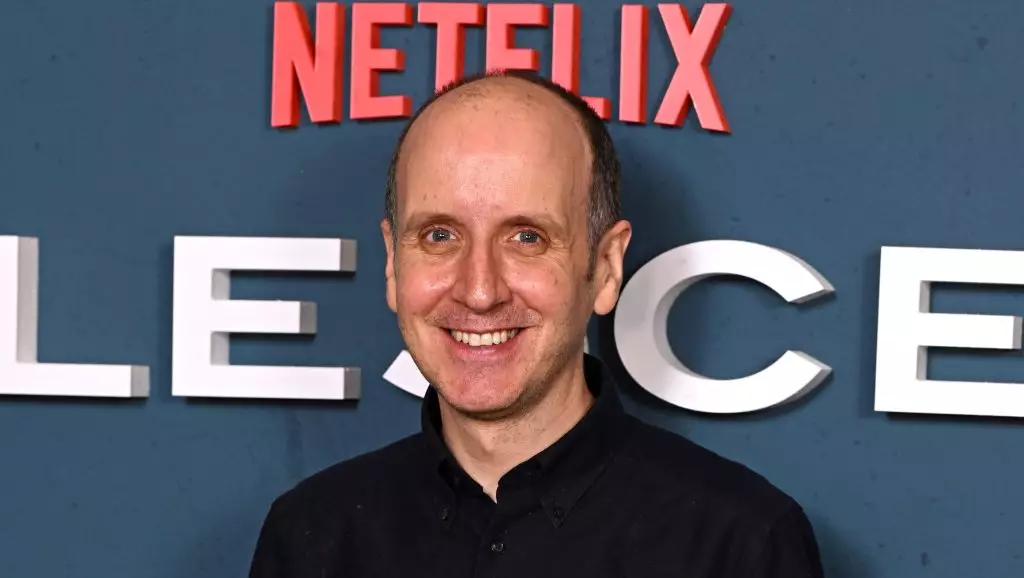In the realm of contemporary British television, the name Jack Thorne has become synonymous with innovative storytelling. However, amid the accolades and high-profile projects, Thorne has raised a clarion call regarding a looming crisis that threatens the very fabric of the industry. The success of shows like *Adolescence* is not merely a triumph of creative vision but also a testament to the precarious state of funding and support for unique narratives in the UK. As streaming services continue to reshape the viewing landscape, Thorne’s concerns unveil a deeper narrative about the future of British television.
Funding Crisis: A Dire Warning
Thorne’s vehement warning about the “devastating” funding crisis reveals much about the structural issues facing UK broadcasters. As he articulated in a recent Deadline interview, the decline in budgets due to stringent financial constraints poses a significant threat to the production of character-driven, distinctive British series. With the BBC and Channel 4 under mounting pressure, the opportunity for new and varied storytelling may recede further into obscurity. Thorne paints a vivid picture of a cultural landscape at risk, where the voices of emerging writers are stifled by financial realities.
The argument is profound: if significant funding is not readily available, creative narratives reflecting the life experiences and voices of diverse communities may be overshadowed by more commercially viable crime dramas. This shift not only narrows the scope of what stories get told but also diminishes the rich tapestry that British television is renowned for globally. The erosion of this storytelling tradition spells trouble for up-and-coming writers, as fewer platforms exist to nurture and showcase their unique perspectives.
The Role of Streaming Services in Local Storytelling
Interestingly, while platforms like Netflix have provided a global stage for shows such as *Adolescence*, Thorne emphasizes that their involvement is not a catch-all solution. The writer’s concerns are not just about a lack of funding, but rather about the heart of the storytelling culture that has defined British television for decades. “It’s exciting that Netflix is making these shows, but it’s not everything,” Thorne asserts, indicating that reliance on international streaming services is akin to placing a bandage on a much deeper wound.
His early experiences, notably with *Skins*, illustrate how critical it is for emerging talents to have the autonomy to express their narratives authentically, a luxury that might be threatened if traditional broadcasters do not receive the necessary support. Thorne’s observations force us to reflect on who controls the narrative: a future dominated by international financiers may lead to homogenized content that lacks the flavors and subtleties of local storytelling.
A Call to Action for the UK Government
Thorne’s plea extends directly to the UK government, advocating for substantial interventions designed to bolster the industry. His proposal for enhanced tax breaks and a streamer levy—where platforms like Netflix contribute directly to a British content fund—could unify efforts to sustain local storytelling while allowing international players a stake in preserving the richness of British television. Such a model encourages collaboration rather than confrontation, and serves as a pragmatic approach to address current funding disparities while fostering a diverse storytelling ecosystem.
The potential benefits of these proposed changes are multifaceted. By creating funding mechanisms that support both established and emerging writers, the industry could thrive, encouraging a broad spectrum of narratives to surface. In a climate where Thorne notes that “the whole culture starts to crumble,” fostering growth through collaboration is not just desirable but essential.
The Future of British Content: Hope in Unity
While UK ministers express cautious receptiveness to these concerns, the path forward requires delicacy. As Thorne wisely points out, any changes must be implemented methodically to avoid destabilizing the current screen ecology. By thoughtfully integrating international streaming services into the funding discussions, there exists an opportunity to create a more equitable landscape for storytelling.
*Adolescence*, which has already garnered impressive viewership numbers since its launch, should be seen not merely as an anomaly but as a beacon for what could be accomplished if the industry reinvests in its unique cultural narratives. As the industry grapples with financial challenges, it must not lose sight of the importance of nurturing fresh voices and experiences reflective of the complex society in which we live. Ultimately, the opportunity lies in collective action—bridging traditional channels with modern platforms to revitalize and sustain the artistic output of British television.

